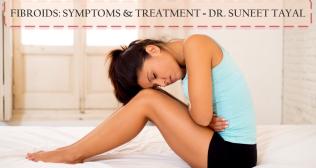
Obstetrics and Gynaecology
Live Life Carefree
admin Oct 11, 2023
 Vaginal yeast infection is a common female condition. By recognising your own risk factors, you can prevent future infections
Vaginal yeast infection is a common problem faced by many women. It isn’t a sexually transmitted infection. As many as three out of four women experience a yeast infection at some point in their lifetime.
A vaginal yeast infection is a type of inflammation of the vagina characterised by vaginal irritation, intense itchiness and vaginal discharge. It affects the vagina and tissues at the opening of your vagina (vulva). Simple treatment is usually effective, unless you have recurrent yeast infections.
Symptoms
Yeast infection symptoms can range from mild to moderate and include:
• Vaginal pain and soreness
• Itching and irritation in the vagina
• A burning sensation while urinating or during sexual intercourse
• Swelling and redness of the vulva
• Thick, white and odour-free vaginal discharge
You might have an infection if:
• You have redness, swelling and itching
• You develop cracks, sores or tears
• Infection is caused by a type of candida
• You have recurrent yeast infections (more than three times in a year)
• You have uncontrolled diabetes
• You have low immunity due to HIV infection or due to some medications
• You’re pregnant
Tests and diagnosis
To diagnose your doctor may:
• Ask your medical history — This may include gathering information about previous vaginal infections or sexually transmitted infections, intake of antibiotics, recent travel, etc.
• Perform a pelvic exam — Your doctor visually examines your genitals externally for any signs of infection. Next, your doctor places an instrument (speculum) into your vagina to examine the vagina and cervix. If required, he may collect a sample of vaginal discharge for vaginal culture test.
• Send a sample of vaginal secretions for testing — If you have recurrent yeast infections and complicated ones, your doctor may prescribe more effective treatment.
Treatment
Vaginal yeast infection treatment depends on whether you have an uncomplicated or a complicated infection.
For mild to moderate and uncomplicated yeast infection and infrequent episodes of yeast infection, your doctor may recommend:
• Single-dose of the anti-fungal medication to be taken orally.
• Short-course vaginal therapy: A one-time application or one-to-seven-days regimen of an anti-fungal cream, ointment, tablet or suppository effectively clears a yeast infection in most cases.
In case you've finished your treatment and your problem doesn't improve, or if your symptoms reappear within two months of being treated, you have to follow-up with your doctor.
Complicated yeast infection treatment may include:
• Long-course vaginal therapy: Vaginal treatment for complicated yeast infections includes a form of a vaginal cream, ointment, tablet or suppository. The duration of treatment will be decided by the doctor.
• Multi-dose oral medication: Instead of vaginal therapy, your doctor might prescribe two or three doses of an anti-fungal-medicine to be taken orally. However, this therapy isn't recommended for pregnant women.
• Routine maintenance: For recurrent yeast infections, your doctor might recommend a medication routine to keep yeast growth in check and prevent future infections.
Vaginal yeast infection is a common female condition. By recognising your own risk factors, you can prevent future infections
Vaginal yeast infection is a common problem faced by many women. It isn’t a sexually transmitted infection. As many as three out of four women experience a yeast infection at some point in their lifetime.
A vaginal yeast infection is a type of inflammation of the vagina characterised by vaginal irritation, intense itchiness and vaginal discharge. It affects the vagina and tissues at the opening of your vagina (vulva). Simple treatment is usually effective, unless you have recurrent yeast infections.
Symptoms
Yeast infection symptoms can range from mild to moderate and include:
• Vaginal pain and soreness
• Itching and irritation in the vagina
• A burning sensation while urinating or during sexual intercourse
• Swelling and redness of the vulva
• Thick, white and odour-free vaginal discharge
You might have an infection if:
• You have redness, swelling and itching
• You develop cracks, sores or tears
• Infection is caused by a type of candida
• You have recurrent yeast infections (more than three times in a year)
• You have uncontrolled diabetes
• You have low immunity due to HIV infection or due to some medications
• You’re pregnant
Tests and diagnosis
To diagnose your doctor may:
• Ask your medical history — This may include gathering information about previous vaginal infections or sexually transmitted infections, intake of antibiotics, recent travel, etc.
• Perform a pelvic exam — Your doctor visually examines your genitals externally for any signs of infection. Next, your doctor places an instrument (speculum) into your vagina to examine the vagina and cervix. If required, he may collect a sample of vaginal discharge for vaginal culture test.
• Send a sample of vaginal secretions for testing — If you have recurrent yeast infections and complicated ones, your doctor may prescribe more effective treatment.
Treatment
Vaginal yeast infection treatment depends on whether you have an uncomplicated or a complicated infection.
For mild to moderate and uncomplicated yeast infection and infrequent episodes of yeast infection, your doctor may recommend:
• Single-dose of the anti-fungal medication to be taken orally.
• Short-course vaginal therapy: A one-time application or one-to-seven-days regimen of an anti-fungal cream, ointment, tablet or suppository effectively clears a yeast infection in most cases.
In case you've finished your treatment and your problem doesn't improve, or if your symptoms reappear within two months of being treated, you have to follow-up with your doctor.
Complicated yeast infection treatment may include:
• Long-course vaginal therapy: Vaginal treatment for complicated yeast infections includes a form of a vaginal cream, ointment, tablet or suppository. The duration of treatment will be decided by the doctor.
• Multi-dose oral medication: Instead of vaginal therapy, your doctor might prescribe two or three doses of an anti-fungal-medicine to be taken orally. However, this therapy isn't recommended for pregnant women.
• Routine maintenance: For recurrent yeast infections, your doctor might recommend a medication routine to keep yeast growth in check and prevent future infections. 


















